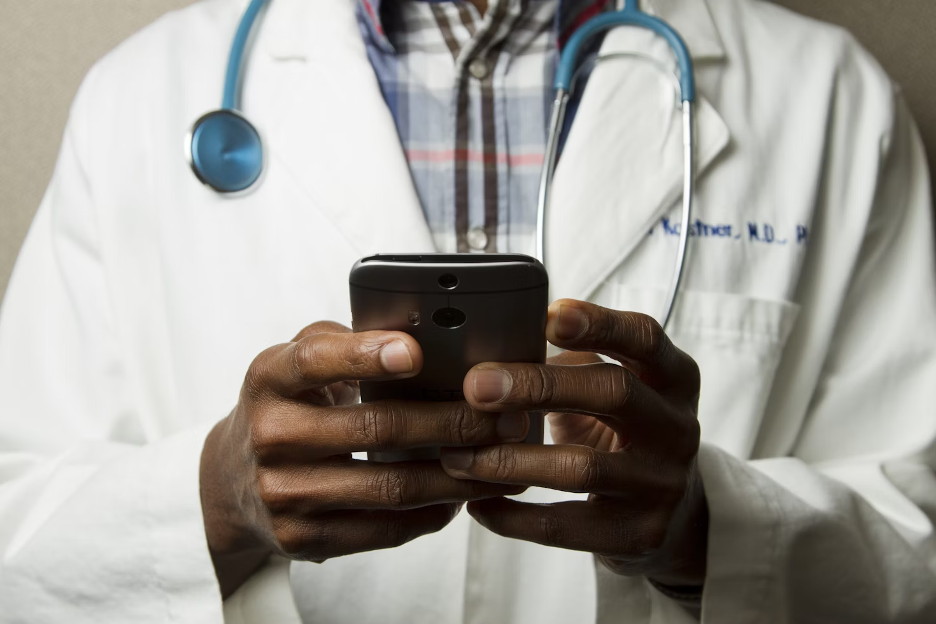
Blockchain in healthcare is a fresh concept. It impacts patient data honesty and care coordination and stops fraud.
This piece will lead you through how blockchain changes healthcare, its effects on data safety, and its future role in patient service.
Learn about the main benefits, current uses, and potential future developments in this decisive crossroads of technology and healthcare.
The Basics of Blockchain's Role in Healthcare
The use of blockchain is already known in places like trading, games with bitcoin pokies, and many more technologies. A distributed blockchain database maintains an ever-expanding list of ordered information, or blocks, and is a powerful tool. Cryptography is utilised to link these blocks, similar to how bitcoins work.
They have a cryptographic hash of the previous block, a timestamp, and transaction data. This structure of blockchain makes the information stored safe and reliable.
So, why does healthcare need blockchain? Its significance comes from blockchain’s distinct features. These make it an excellent way to manage and guard health data.
The Functioning of Blockchain
Blockchain works on a decentralised principle. It shifts control and decision-making from one entity to a distributed network.
Unlike centralised systems where control stays with one entity, blockchain lets everyone see the complete history. Everyone has a part in the network's operation and its honesty.
This offers a new sense of openness and security.
Blockchain's Role in Healthcare
Blockchain can significantly improve healthcare in hospitals. It secures data, allows doctor's notes to be checked, and keeps patient information safe.
It helps share health data but still protects privacy. This substantial shift matters dearly to an industry that values safety and privacy.
Medical Data Protection by Blockchain

Blockchain offers much potential in safeguarding medical data. It promises:
- Easy sharing of data among health providers
- Keeping data private
- Upholding the truth of medical records
- Guarding patient confidentiality
By offering safe and efficient data management, blockchain can reshape healthcare, including systems, for healthcare professionals.
But how does this work in real life?
Access Rules and Patient Privacy
Blockchain's strength is in safe access rules and data sharing in healthcare. With blockchain, changing or removing data is nearly impossible without everyone agreeing.
This maintains the accuracy and safety of patient records and upholds patient privacy.
Spotting and Stopping Fraud
In the healthcare industry, fraud is a major issue. Blockchain technology can play a crucial role in preventing healthcare fraud by:
- Maintaining immutable data records
- Ensuring transparency in data management
- Utilising machine-learning techniques in claims processing to detect anomalies and potentially fraudulent activities in real time.
Enhancing Interoperability and Data Exchange
In the healthcare sector, interoperability and data exchange pose significant challenges.
Blockchain can play a vital role in overcoming these challenges by enabling secure and standardized data exchange between different healthcare systems and enhancing communication and information sharing among healthcare providers.
Decentralised Health Records
Decentralised health records offer an innovative approach to managing health data, with blockchain technology at its core.
By distributing data in blocks across the network, blockchain technology provides a secure, patient-centric platform for managing personal health records.
Streamlining Clinical Trials and Research
Blockchain technology also holds great potential in streamlining clinical trials and research.
Blockchain technology can enhance transparency, integrity, and trust in managing clinical trial data by providing an immutable data maintenance and sharing platform.
Revolutionising Supply Chain Management
Beyond data, blockchain technology can also revolutionise the medical supply chain within healthcare.
Blockchain technology can significantly transform healthcare supply chain management through increased transparency, improved drug traceability and authentication, and enhanced efficiency of pharmaceutical supply chains.
Tackling Fake Medicines
Fake medicines are an enormous global problem. They endanger public health and patient safety.
Blockchain technology can fight this problem. It brings openness and traceability to the pharmaceutical supply chain. This verifies the authenticity of drugs.
Maintaining Medical Equipment Safety
Medical equipment safety is essential, and blockchain can help ensure this. The technology tracks the lifecycle of devices and offers a secure way to store data. This makes medical devices more reliable and safe.
Giving Patients Power Through Personal Health Logs

Personal Health Records (PHRs) use blockchain technology to give patients control over their health data. This technology lets patients own and control their health records and can improve patient outcomes.
How PHRs Help
Personal Health Records (PHRs) improve patient engagement in healthcare by:
- Sharing up-to-date medical history, including patient health logs and electronic medical records
- Allowing health professionals to access patient data
- Increasing understanding of diseases and the ability to manage them
- Boosting people's participation in their healthcare.
Platforms Using Blockchain For PHR
Some platforms use blockchain for PHR operations. These platforms manage personal health logs securely and efficiently. The benefits they offer include:
- Increased interoperability
- Improved data security and privacy
- Enhanced patient control over health information
- Reduced administrative costs
- Seamless data sharing between healthcare providers
Overcoming Challenges and Limitations
Despite the apparent benefits of blockchain technology in healthcare, it also presents implementation challenges and limitations.
These challenges range from technical issues like scalability and interoperability to legal and regulatory hurdles.
Addressing Technical Challenges
The technical challenges of implementing blockchain technology in healthcare, like scalability and interoperability, can be tackled with sharding, hard forks, and various other solutions.
Navigating Legal and Regulatory Issues
Legal and regulatory challenges associated with implementing blockchain technology in healthcare include:
- Navigating through intricate data privacy and security regulations
- Obtaining patient consent
- Ensuring compliance with existing healthcare laws and regulations
Future Prospects and Research Directions
Looking ahead, the prospects for blockchain technology in healthcare are promising. With its potential to revolutionise healthcare, from improving data security to streamlining patient care, the applications of blockchain technology are vast.
Emerging Applications and Use Cases
Emerging applications and use cases of blockchain technology in healthcare include:
- Supply chain transparency
- Patient-centric electronic health records (EHRs)
- Smart contracts for clinical trials
- Credentialing and identity management
Advancing Blockchain Adoption
For blockchain technology to realise its full potential in healthcare, advancing its adoption is critical.
Education and awareness are crucial in driving this adoption by building trust and confidence in blockchain among healthcare professionals and stakeholders.
This article is part of the HealthManagement.org Point-of-View Programme.






















